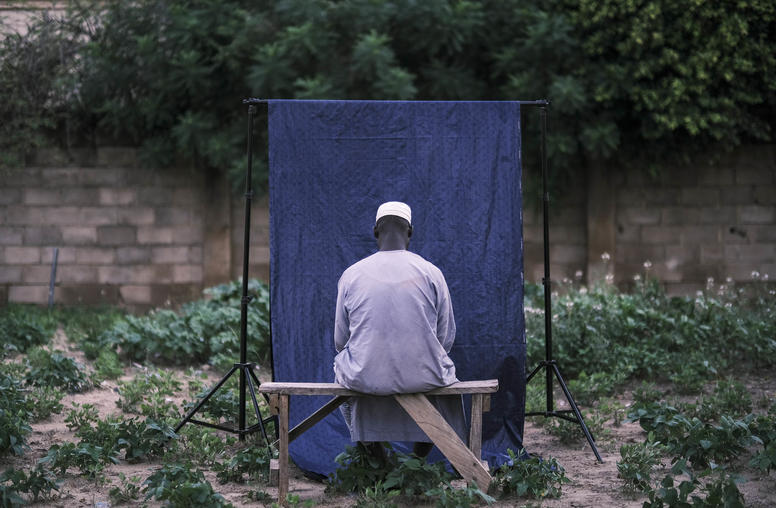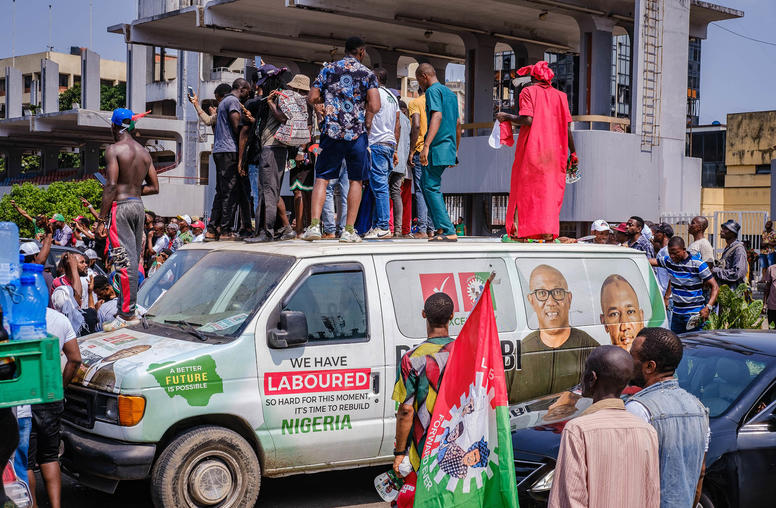Nigeria’s 2019 Elections: Change, Continuity, and the Risks to Peace
Nigeria’s keenly anticipated national elections are scheduled to take place in February and March 2019. These elections will mark the sixth vote since the reintroduction of democracy in 1999—and will follow the country’s first peaceful transition of power to an opposition party in 2015, when Goodluck Jonathan of the PDP conceded to Muhammadu Buhari of the rival APC. Based on field research in eight states and Abuja, this Special Report identifies the emerging and shifting risks of election violence for Nigeria’s 2019 elections and provides recommendations for Nigerian authorities and international donors supporting the electoral process to help mitigate these risks.
Summary
- In 2019, Nigeria will hold national elections for the first time since a historic, peaceful, democratic transition of power to the opposition in 2015, when incumbent president Goodluck Jonathan of the People’s Democratic Party conceded defeat to Muhammudu Buhari of the All Progressives Congress (APC).
- Buhari is standing for a second term, but nominations for other positions within the APC are expected to be highly contested. This could lead to the fragmentation of the party, defections to other parties, and violence.
- Social and economic inequalities, ethnic and religious divisions, and structural weaknesses, such as corruption and weak state capacity, remain prevalent across Nigeria and contribute to the risks of electoral violence.
- Other important factors contributing to the risks of electoral violence have evolved since 2015, including changing forms of insecurity and the prominence of disputes within, rather than between, the political parties. Grievances or violence arising from recent local government elections may also have significant consequences for national elections.
- Public confidence in Nigeria’s Independent National Electoral Commission (INEC) is mixed. Although INEC was applauded for organizing broadly credible elections in 2015, some respondents expressed concerns that the commission’s progress may not be sustained in 2019.
- More assertive communications by INEC, transparent results management, staffing reforms, earlier and more consistent police preparations, improved internal democracy within political parties, and the creation of a specialized election offenses commission would likely alleviate some risks of violence in the 2019 election cycle.
- Successful state-level initiatives—such as efforts in Plateau State to tamp down on religious intolerance and an initiative in Kano State to improve the quality of election coverage by the media—could be considered for adaptation in other states.
- The United States and other international supporters of Nigeria’s electoral process should augment their diplomatic efforts to preempt electoral violence in the run-up to the 2019 elections.
- During the campaign, voting, and results phases of the election, regional and continental leaders should be prepared to mediate disputes and to work toward peaceful acceptance of the election’s outcomes.
About the Report
Drawing on more than two hundred interviews conducted in March and April 2018 in eight states and the Federal Capital Territory, this Special Report identifies the emerging and shifting risks of election violence for Nigeria’s 2019 elections and provides recommendations for Nigerian authorities and international donors supporting the electoral process to help mitigate these risks. Research for this report was supported by the Middle East and Africa Center and the Center for Applied Conflict Transformation at the United States Institute of Peace, and by the Centre for Democracy and Development, the CLEEN Foundation, the Fund for Peace, the International Republican Institute, and the National Democratic Institute.
About the Authors
Aly Verjee is a visiting expert at the United States Institute of Peace. He has observed, administered, or analyzed more than thirty elections, mostly in sub-Saharan Africa. Chris Kwaja is a senior advisor at USIP and a senior lecturer at the Centre for Peace and Security Studies at the Modibbo Adama University of Technology in Yola, Nigeria. Oge Onubogu is a senior program officer at USIP and leads the Institute’s programs in Nigeria.



